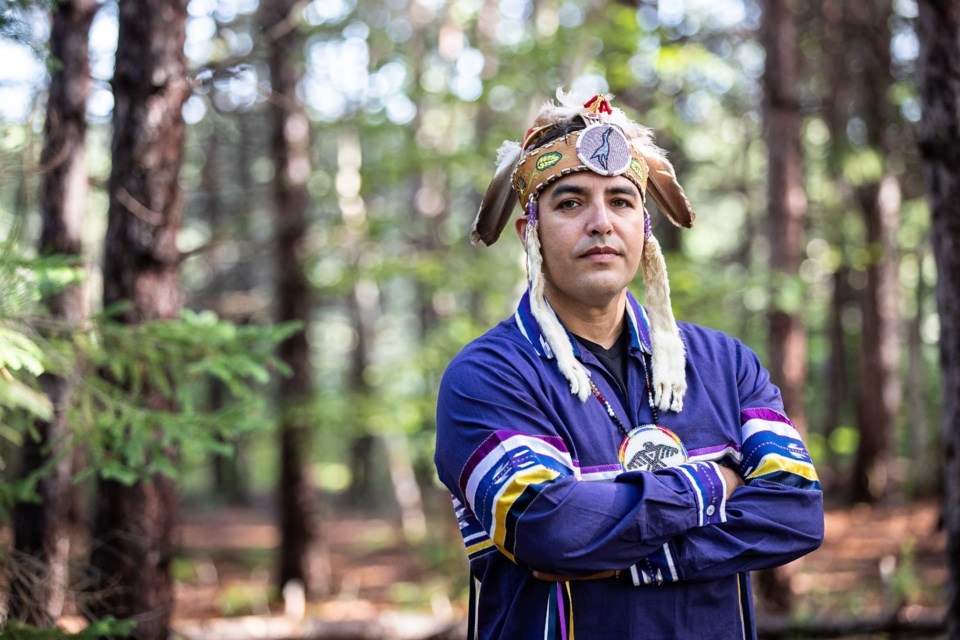Anishinabek Nation has declared a state of emergency due to what it calls continual inequitable funding for First Nations policing.
On Wednesday, the first day of the Anishinabek Nation Grand Council assembly, the Anishinabek Nation chiefs-in-assembly unanimously declared the state of emergency.
Aundeck Omni Kaning First Nation Chief Patsy Corbiere moved the resolution and it was seconded by Magnetawan First Nation Chief Lloyd Myke.
This declaration comes as the funding agreement for the Anishinabek Police Service and United Chiefs and Councils of Manitoulin Anishnaabe Police expired on March 31.
The Anishinabek Nation said in a release on Thursday that the federal government is refusing to renegotiate more equitable agreements and that to date, it has refused meaningful negotiations with the Anishinabek Police Service, which serves communities within the Anishinabek Nation territory.
“The declaration of a State of Emergency highlights the urgency and seriousness of the policing crisis in our communities,” said Anishinabek Nation Grand Council Chief Reg Niganobe.
“It is essential for Canada to acknowledge and address the systemic barriers and discriminatory practices that hinder the safety and well-being of our citizens. We demand equitable resources and support for our policing services to ensure the security and justice our communities need and deserve.”
Substantial issues have arisen from the federally administered First Nations and Inuit Policing Program, according to Anishinabek Nation, which asserts that deliberate under-funding and inadequate resourcing of Indigenous community safety initiatives is discriminatory at its core.
The Anishinabek Police Service and other Indigenous policing services are nearing the end of available funding, which Anishinabek Nation said impedes their ability to not only provide essential services but impacts the administration function of operations.
“We won't be able to [provide services], that's as simple as it is, the government controls all the funding and this is an issue that they've known about for several years now,” said Niganobe.
“Normally what they'll do is they'll ask us for small agreements and small increments, but they've always been underfunded and you know they're not as equal as regular OPP service or any municipal police service so it just can't be tolerated any longer. In this day and age, in 2023, we think we'd have equal services.”
Due to the issue of accessing many northern communities and strenuous relationships that some communities have with the OPP, Niganobe said that it was important for communities to have their own police service.
“Because of course, they were more culturally sensitive, and more importantly, they actually know the citizens, a lot of the time, so there is no need for any kind of force during those police encounters,” he said.
“So, in this instance you have the trouble of being able to access those communities, Being able to provide safety in those communities at this time and that shouldn't happen.”
In addition to the state of emergency declaration, the Anishinabek Nation chiefs-in-assembly have issued additional directives, including support for policing resources and advocacy for essential police service designation.
The Anishinabek Nation chiefs-in-assembly have also directed that if significant progress is not made by Aug. 1, the Anishinabek Nation will prepare a litigation action plan to ensure the protection of rights and justice for Indigenous communities.
A status update on the progress made in addressing the policing crisis is also to be provided at the fall grand council assembly.
“I hope something can be done sooner rather than later,” said Niganobe. “And I hope it's a long-term answer and not just another year of funding, another year by year.”
